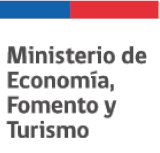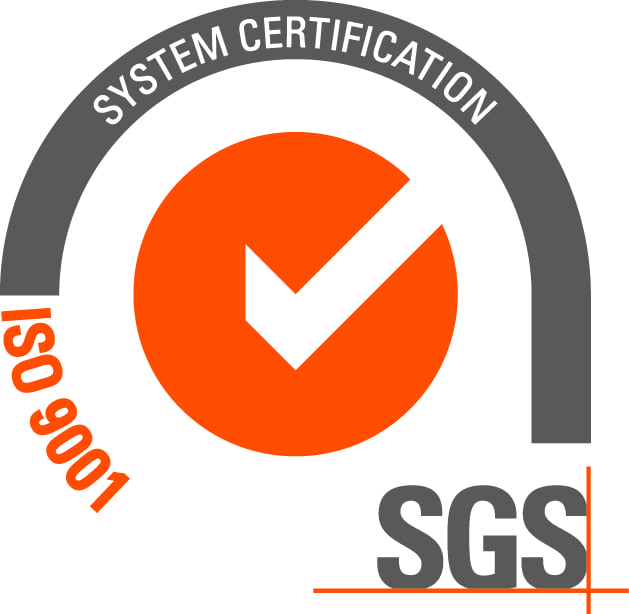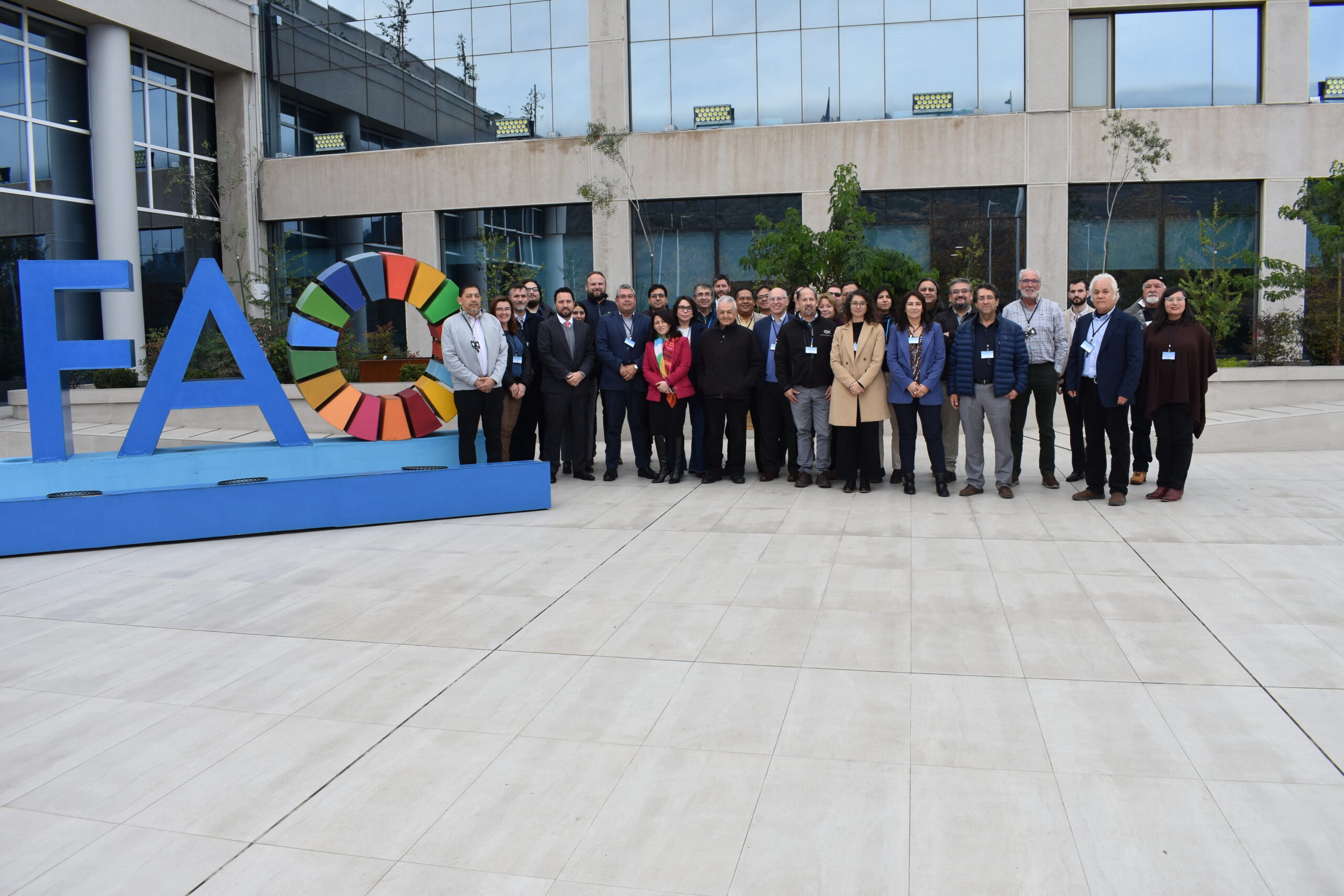
The International Workshop on Swordfish Data and Scientific Research was held at the FAO office in Santiago, Chile, from June 17 to 19. Organized by the Undersecretariat of Fisheries and the Fisheries Development Institute (IFOP), representatives from the Inter-American Tropical Tuna Commission (IATTC), the European Union, the United States, Ecuador, and Chilean professionals from Sernapesca, Subpesca, IFOP, artisanal fishers, shipowners, and industrial fisheries participated.
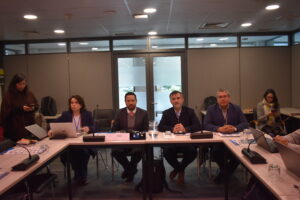 Gonzalo Pereira, Executive Director of IFOP, explained, “This workshop is being held in compliance with an IATTC initiative, in which Chile has observer status, but we actively work with our IFOP researchers and professionals from the Undersecretariat of Fisheries. This workshop was created as an initiative to standardize data collection capabilities for swordfish. Representatives from the United States, Ecuador, and Chile, who are the main stakeholders in this fishery and also the largest contributors to the research and data for this work, are participating in the workshop.”
Gonzalo Pereira, Executive Director of IFOP, explained, “This workshop is being held in compliance with an IATTC initiative, in which Chile has observer status, but we actively work with our IFOP researchers and professionals from the Undersecretariat of Fisheries. This workshop was created as an initiative to standardize data collection capabilities for swordfish. Representatives from the United States, Ecuador, and Chile, who are the main stakeholders in this fishery and also the largest contributors to the research and data for this work, are participating in the workshop.”
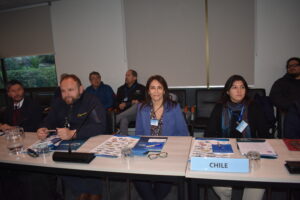 Dr. Patricia Zárate, Head of the IFOP Fisheries Assessment Department, said, “This workshop represents a fundamental opportunity to strengthen scientific knowledge and the sustainable management of this species of high ecological and fishery value. Through this collaborative workspace, researchers, technicians, and managers will exchange key information on monitoring methodologies, biological and fishery data analysis, and recent results on aspects of the biology and ecology of this species. This type of event allows for standardizing criteria, identifying information gaps, and fostering the development of joint research that contributes to both swordfish conservation and decision-making based on scientific evidence.”
Dr. Patricia Zárate, Head of the IFOP Fisheries Assessment Department, said, “This workshop represents a fundamental opportunity to strengthen scientific knowledge and the sustainable management of this species of high ecological and fishery value. Through this collaborative workspace, researchers, technicians, and managers will exchange key information on monitoring methodologies, biological and fishery data analysis, and recent results on aspects of the biology and ecology of this species. This type of event allows for standardizing criteria, identifying information gaps, and fostering the development of joint research that contributes to both swordfish conservation and decision-making based on scientific evidence.”
“Mg. Camila Bustos, from the Undersecretariat of Fisheries and Aquaculture, expressed that this Scientific Data Workshop, within the framework of the IATTC swordfish stock assessment in the Eastern South Pacific, represents a milestone for the fishery. At the workshop, countries reaffirmed their commitment to improving their monitoring and data collection systems, thus strengthening international cooperation toward more sustainable fisheries management. She also highlighted the active participation of countries and the fishing sector (both artisanal and industrial), whose agreements reflect the shared will to advance this important task.”
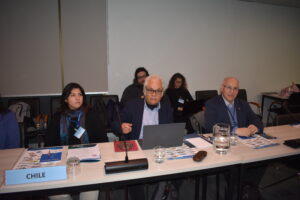 Mg. Patricio Barria, senior researcher at IFOP, spoke about the importance of the workshop, saying, “It brings together countries such as Ecuador, the European Union, and IATTC researchers. Together, we are working to improve sampling systems in all fisheries in the Eastern South Pacific Ocean, estimate swordfish life cycle parameters, and improve the fishery’s biological and biochemical indicators, in order to strengthen swordfish stock assessments. We hope to generate regional projects with the participating countries—the United States, Ecuador, the European Union, and Chile—as a result of this meeting, and thus obtain relevant information for this fishery.”
Mg. Patricio Barria, senior researcher at IFOP, spoke about the importance of the workshop, saying, “It brings together countries such as Ecuador, the European Union, and IATTC researchers. Together, we are working to improve sampling systems in all fisheries in the Eastern South Pacific Ocean, estimate swordfish life cycle parameters, and improve the fishery’s biological and biochemical indicators, in order to strengthen swordfish stock assessments. We hope to generate regional projects with the participating countries—the United States, Ecuador, the European Union, and Chile—as a result of this meeting, and thus obtain relevant information for this fishery.”
Dr. Carolina Minte of the Inter-American Tropical Tuna Commission added, “I’m part of the stock assessment team. This workshop is very important for integrating countries into the scientific and research sectors. This will allow us to have better information, and thus, with a better assessment and data collected jointly and in a standardized manner, we can advise the commission to make better decisions for the sustainable management of this fishery.”
Marcos Herrera, from Ecuador and leader of the vulnerable fish and swordfish programs, said, “The governments of Ecuador and Chile, along with Patricio Barría, have been discussing holding a regional workshop for some time, since swordfish is a resource exploited by both Ecuador and Chile, and its capture is very important, and that is materialized today in this workshop.”
Press related links:



